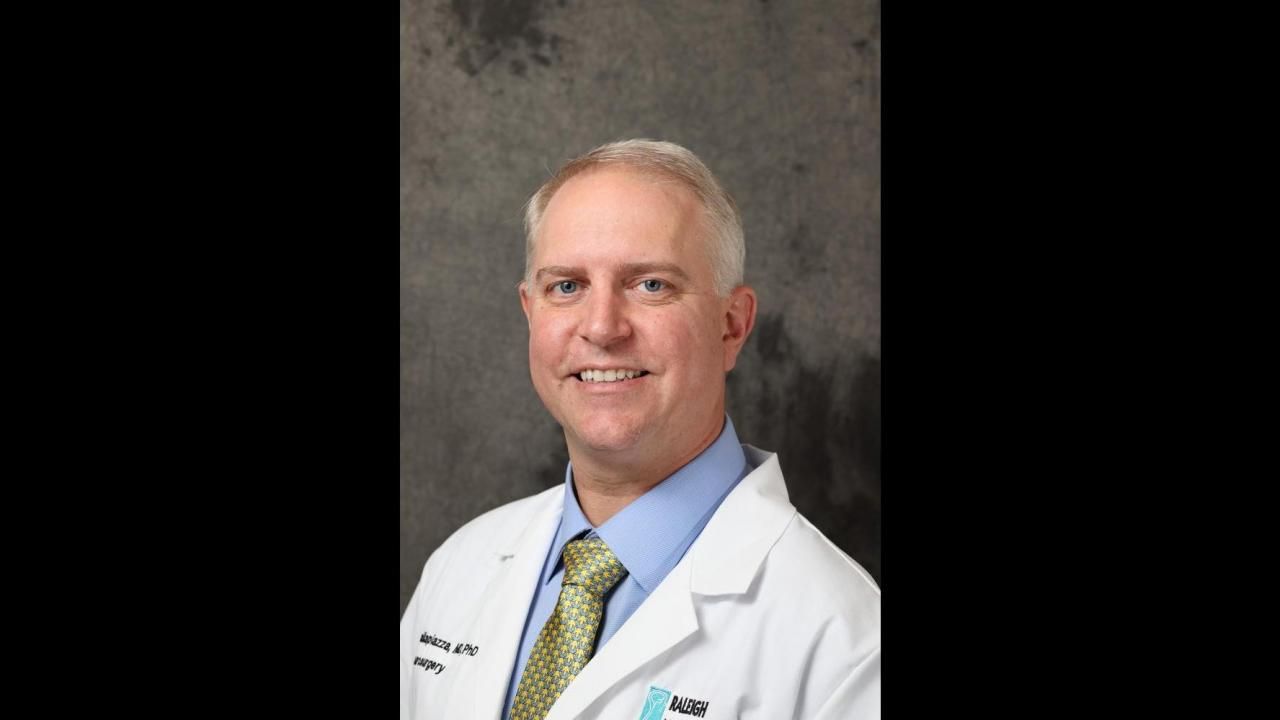Functional neurosurgery now available in Wake County

This article was written for our sponsor, Raleigh Neurosurgical Clinic
Until a few months ago, people in Wake County who needed functional neurosurgery had to travel to see a provider. Now, they can get functional neurosurgery services closer to home at Raleigh Neurosurgical Clinic, thanks to the addition of surgeon Robert Dallapiazza, MD, PhD.
"Traditionally, patients in Wake County who had neurosurgery needs — like Parkinson's, deep brain stimulation, or epilepsy — all had to leave the county for treatment," said Jacob Rodman, CEO of Raleigh Neurosurgical Clinic.
While Duke University has a program, it takes months or years to get in, Rodman said, so some people even traveled out of state. Now, they can get help nearby.
"Our overall practice approach is to be able to get patients in as quickly as possible," Rodman said.
Not only can people who need care get in quickly, but they get a personalized experience to make the visit easier, including being able to park close.
"We want to provide a very personal touch to every person who walks through our doors," Rodman said. He contrasted the experience patients can receive at Raleigh Neurosurgical Clinic with a typical experience one may receive at a large university setting where the parking situation may be confusing and change, and where you are likely to see different providers over the course of your treatment. "Here, you see the same people every time. It's just easier for such a hard diagnosis, a hard time in their life," he said.
Understanding functional neurosurgery
Functional neurosurgery uses electrical stimulation to modulate or change the activity of the nervous system. Also known as neuromodulation, these electrical stimulations are a safe and effective method that may help restore quality of life for many people including those with movement disorders, chronic pain, and epilepsy.
- Movement disorders: This includes conditions such as Parkinson's disease, tremors, and dystonia. "For those, we do brain treatments like deep brain stimulation — planting an electrode in the brain," Dr. Dallapiazza said.
- Chronic pain: People may experience chronic pain caused by a variety of factors, such as back surgery, cancer or trigeminal neuralgia, a severe form of facial pain. Neuromodulation can help reduce the pain by stimulating the brain or peripheral nerves that are not communicating properly with the body's needs.
- Epilepsy: For many years, those with epilepsy had little relief for this disorder which causes seizures. Now, however, doctors have learned more about the pathways of the brain and can offer hope for relief. Dr. Dallapiazza said, "[That treatment] can also involve electrical stimulation of the brain or peripheral nerves as well as advanced techniques like resection (removal) of parts of the brain that are generating seizures."
In addition to these three primary issues, functional neurosurgery may also be helpful for patients who have had strokes and are stalling in the improvement provided by physical therapy alone.
"We're gearing up to start a program at Wake Med where we use an old technology for a new purpose," Dallapiazza said. "We help them to recover their motor function."
Dallapiazza's move to Raleigh Neurosurgical Clinic
Helping people improve their quality of life through functional neurosurgery is personal for Dallapiazza.
"I had a grandmother who had Parkinson's disease and, back in the '90s, when deep brain stimulation was kind of being popularized, she went out on a limb and got it," he said. "And I saw how it helped her get back into the things she wanted to do. I think that had a lasting impression on me."
Dallapiazza has had years of experience, starting with medical school at the University of Iowa and a residency at University of Virginia in Charlottesville.
"I did a specific fellowship in Toronto that focused principally on deep brain stimulation for movement disorders and stereotactic treatments for facial pain," he said. "In Auckland, New Zealand, I did more or less a cranial fellowship, where I focused primarily on brain tumors, cranial trauma, and also movement disorders."
Before joining Raleigh Neurosurgical Clinic, Dallapiazza worked at Tulane University, where he built up the functional neurosurgery part of the practice.
Dallapiazza is looking forward to expanding the care, treatment and possibilities for the people of Wake County and beyond. In addition to seeing patients at the Raleigh location, he will also provide functional neurosurgery services to patients in Wayne County at the Raleigh Neurosurgical Clinic in Goldsboro.
"I have a vision to build a comprehensive practice at the Raleigh Neurosurgical Clinic for patients who have a variety of disorders that can be treated with neuromodulation," he said. "Our goal is to provide a high-quality service and be another great option for patients who want to receive this care in Wake County."
This article was written for our sponsor, Raleigh Neurosurgical Clinic











